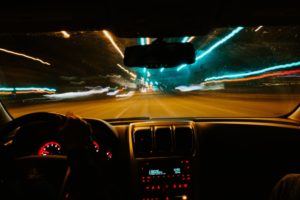The offence of speeding
The laws relating to most Queensland traffic offences are found in the Transport Operations (Road Use) Management Act (“the Act”). However, the speeding laws are found in s.20 Transport Operations (Road Use Management – Road Rules) Regulations (“the Regulations”).
That section states:
A driver must not drive at a speed over the speed limit applying to the driver for the length of road where the driver is driving.
If a person commits a speeding offence, they can be fined over $4,000.
Can the Queensland Police speed?
The Regulations explain whether police officers are required to follow the Queensland road rules. This does not only include speeding but it also includes driving through red lights, on the wrong side of the road, and so on.
Section 305 of the Regulations specifically states the following:
(1) A provision of this regulation does not apply to the driver of a police vehicle if—
(a) in the circumstances—
(i) the driver is taking reasonable care; and
(ii) it is reasonable that the provision should not apply; and
(b) if the vehicle is a motor vehicle that is moving—the vehicle is displaying a blue or red flashing light or sounding an alarm.
This means that the police are allowed to not comply with road rules if they are taking reasonable care and if it’s reasonable that the rules shouldn’t apply. In addition, the police should use their lights or alarm when driving in a way that would ordinarily break the road rules.
The conclusion is that the police are allowed to break the speed limit if it is considered necessary and they are still taking care.
What about other traffic offences?
Now that we know the police are allowed under the Regulations to speed, what about the traffic offences found in the Act?
There is a section in the Act which specifically explains whether the Queensland police are required to obey traffic laws.
Section 144 states:
Provisions of this Act about offences (other than section 79 and 80) do not apply to a police officer while exercising a power, or performing a function, under this or another Act.
In other words, the police do not need to obey traffics laws, but only if they are exercising a power or performing a function as required.
This means that the police are lawfully allowed to speed, drive through red lights and do other acts which would ordinarily be a traffic offence. They can also use mobile phones while driving and not wear a seat-belt.
Importantly, however, they can only drive like this if they are performing their duties. This means that the police cannot commit traffic offences if they are off-duty or not performing any relevant duties at the time.
Exceptions
Even though s144 of the Act says that traffic laws don’t apply to police officers performing their duties, there are two exceptions.
The section specifically states that sections 79 and 80 still apply to police officers, regardless of whether they are on duty or not.
Section 79 states that it is an offence to drink-drive or drive with illegal drugs in your body.
Section 80 makes it illegal to refuse to provide a sample of breath, blood or saliva to test for the presence of alcohol or drugs.
Therefore, the police are never allowed to commit drink- or drug-driving offences in Queensland. If they do, they will be charged with an offence just like any other member of the public.
